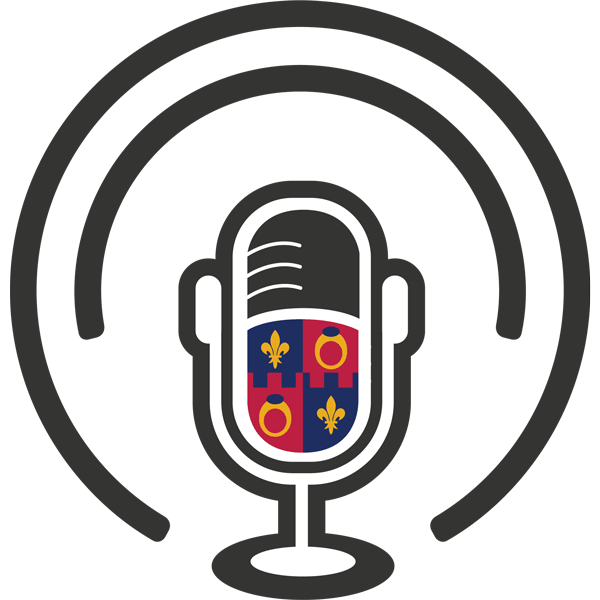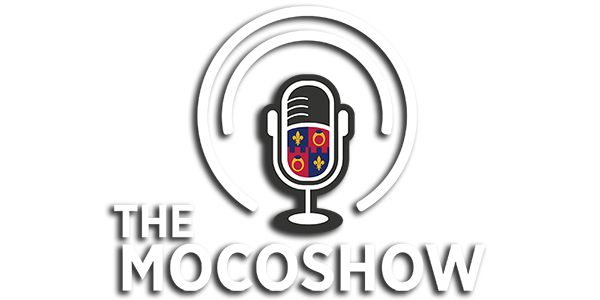Metro has posted a job listing for Metrobus drivers that would allow potential drivers to earn up to $2,500 in signing bonus as well as a starting salary over $50,000 per year that includes overtime opportunities and health and dental insurance (and free transportation on Metrorail add Metrobus).
The job posting can be seen below in full:
Earn up to $2,500 in signing bonus and a rewarding career as Metrobus Driver.
And now, Metro offers up to a $2,500 sign-on bonus.
- Up to a $2,500 sign-on bonus (terms and conditions apply)
- Starting salary of over $50k (with/plus overtime)
- During training: Up to $20/hr.
- After graduation: $25.51/hr.
- Health and dental insurance and other competitive benefits
- Free transportation on Metrorail and Metrobus
Get Started. Stay safe.
At Metro, safety is always top of mind and our precautions against the coronavirus are no exception. We’re conducting more frequent and deeper cleanings around the system, implementing stringent social-distancing protocols and mandatory mask use, and providing personal protective equipment to employees.
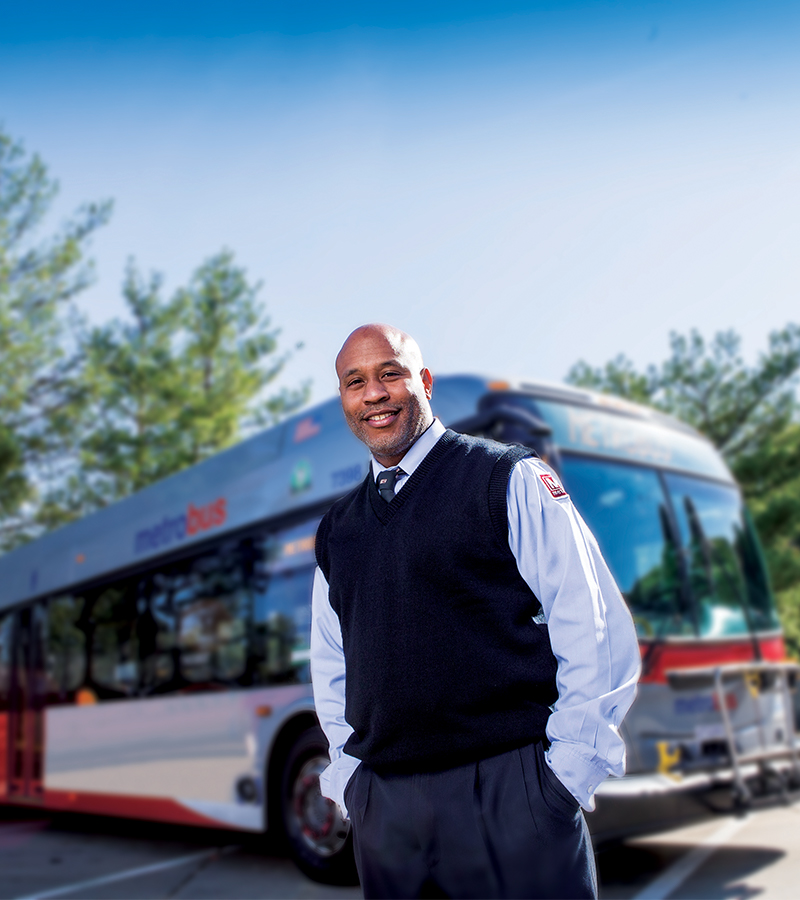
Metrobus Driver Compensation
- Immediate health, dental and life insurance
- 10 week full-time paid training
- Competitive pay:
- Up to $20/hr during training
- $25.51/hr after graduation
- Paid time off
- Retirement benefits
- Tuition reimbursement
- Career advancement opportunities
- Free transportation on Metrorail & Metrobus
- Perks like free uniforms and much more
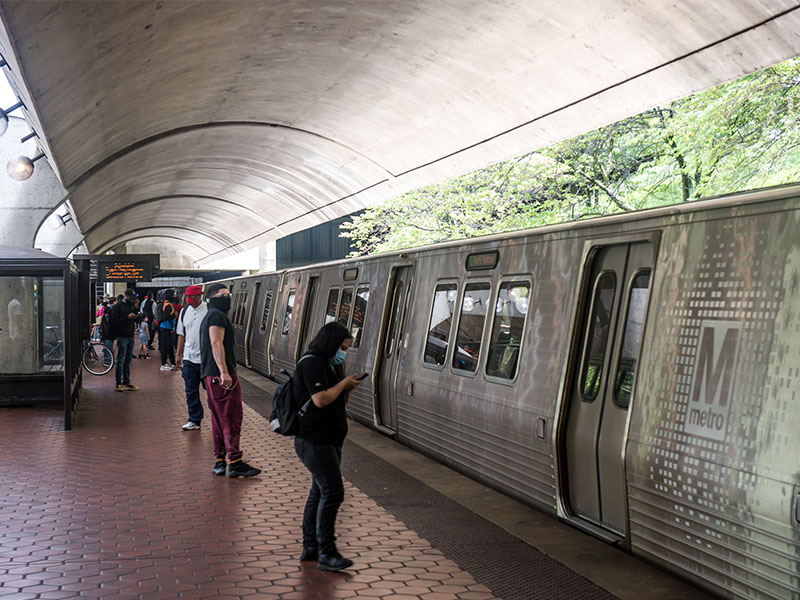
Per Montgomery County:
Metro has announced that Metrobus will return to regular weekday service on Monday, Feb. 7. Metrobus has been operating on a modified Saturday schedule, offering approximately 75 percent of normal weekday service, since Jan. 10 due to covid-related staffing shortages. In addition, Metro will require riders to have newer farecards starting March 1.
While Metro is still experiencing above-average absenteeism, case rates are declining and employees are returning to work following their quarantine requirements.
In its effort to restore regular service on Metrobus, Metro will strategically deploy additional buses when possible to help increase capacity on busy lines.
Metro is working to identify exact staffing levels at each bus division to schedule shifts and re-mobilize the bus fleet. Once regular Metrobus service has resumed, some trips may need to be adjusted based on employee availability each day.
Metro will update customers about service changes through MetroAlerts text and email messages, on the Status and Alerts page at wmata.com and through @MetrobusInfo and @MetrorailInfo on Twitter.
Riders are encouraged to sign up for MetroAlerts to receive the latest service information.
Faster, better faregates are making it easier for customers to tap, pay and ride Metro with installation now reaching nearly 50 percent of all Metrorail stations, one-third of which are complete.
The new faregate system is part of Metro’s fare modernization program to improve the rail system’s faregates and fareboxes on Metrobus, along with other fare technology upgrades, including mobile pay on Apple iOS and Android.
In conjunction with the rollout of the new faregates, and bus fareboxes in late 2022, Metro announced last April that older SmarTrip® cards will be phased out. SmarTrip cards purchased prior to 2012 contain outdated chip technology and do not work with the new faregates now installed or partially installed at nearly half of all stations.
To assist customers with the transition, beginning March 1, the old farecards will no longer be accepted at fare vending machines in stations, fareboxes on buses, parking facilities and retail locations.
Beginning Feb. 7, customers also will not be able to add value to old cards online. Additionally, Metro has started to discontinue the ability to add money to old, obsolete cards at fare vending machines in all stations currently with new faregates. Labels will be added to indicate which machines no longer process the old cards. This will help customers avoid putting additional funds on cards that do not work in those stations.
Customers can easily replace their old farecards by mail, online, phone or in-person,and transfer any balance to a new or existing SmarTrip card or virtual card through SmarTrip mobile pay for iOS and Android. Check the serial number on the back of the SmarTrip card. If the serial number does not start with “0167,” it needs to be replaced.
For step-by-step instructions on how to replace old cards or transfer balances including SmartBenefits to another card, visit the SmarTrip Card Replacementpage.
Metro has releases it Fiscal Year 2023 (FY23) budget page. Here you can find detailed information about Metro’s budget and fare and service proposals. We encourage you to review the proposals and share your feedback by February 15, 2022. Gathering input from our customers, local communities and stakeholders is an integral part of the budget process, and your feedback will factor into our Board of Directors’ final decisions.
Resources
- Take the Survey
- Docket Materials
- FY23 Budget Book (detailed breakdown of Metro’s proposed operating and capital budgets)
Note: The docket contains the Notice of Public Hearing and the proposed fare, rail, bus and Sales Office closure documents.
![]()
Share Your Feedback by 5 p.m. February 15, 2022
Take the survey, submit written comments or upload documents.
Participate in a Public Hearing
Metro will host three Public Hearings that you can participate in virtually or in person.
- To participate by phone, call 855-925-2801 and enter meeting code 8563.
- To participate via video, preregister by emailing [email protected] by 5 p.m. the day before the Public Hearing.
- To participate in person, preregister by emailing [email protected] or calling 202-962-2511 by 5 p.m. the day before the Public Hearing. You can also register on-site.
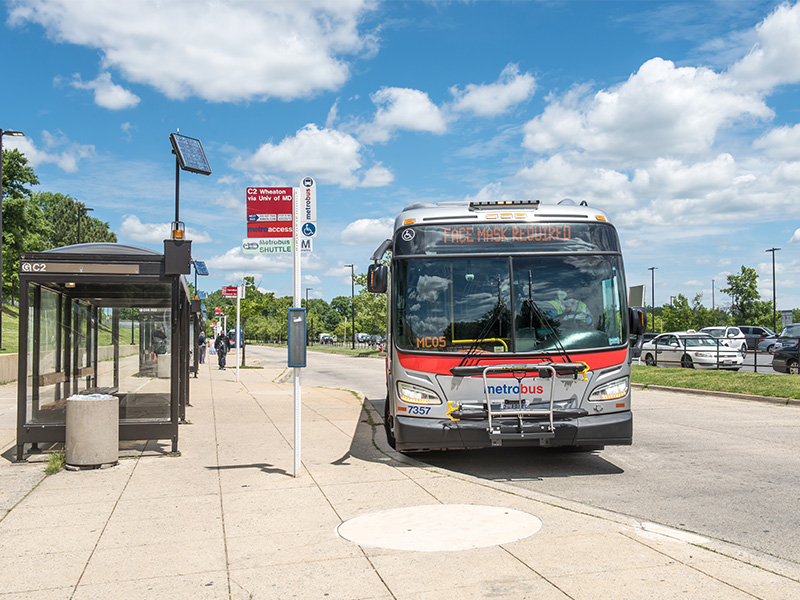
Metro today announced that Metrobus will return to regular weekday service on Monday, February 7. Metrobus has been operating on a modified Saturday schedule, offering approximately 75 percent of normal weekday service, since January 10 due to covid-related staffing shortages.
”Shady Grove and Rockville stations have reopened!” proclaimed Metro in a recent post on its website and social media.
Per Metro, “Here is everything you need to know about service at the reopened stations and fun facts about the project.”
- Brighter, more efficient LED lights
- New digital screens for passenger information
- Upgraded speakers for station announcements
At both stations, customers will experience new, modernized faregates with larger displays and enhanced safety features.
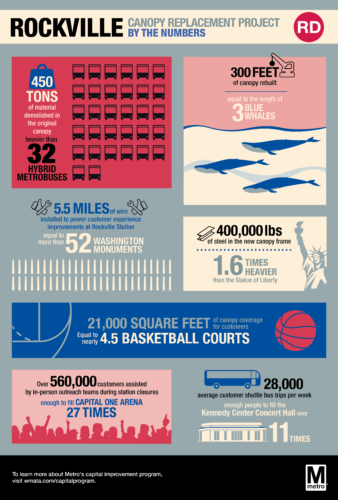
Travel Tips
- Red Line service has resumed at Shady Grove and Rockville stations.
- Metrobus and RideOn will continue to stop at their current temporary locations at Rockville Station until February.
- SmarTrip cards purchased before 2012 do not work with the new faregates at both stations — learn how to get a replacement card.
- Some parking remains temporarily closed at both stations.
- Federal law requires wearing a face mask on public transit.
Five things to know now that Shady Grove and Rockville stations have reopened:
1. Red Line service resumes
- Learn about Metrorail service levels and hours and use Trip Planner to plan your upcoming trip.
- Free shuttle bus service will not be offered after January 15.
2. Buses will continue to stop at their temporary locations at Rockville Station until February.
- The West Kiss & Ride lots at Shady Grove and Rockville stations will remain closed while the construction site is cleaned up. Use the East Kiss & Ride lots for passenger pick up/drop off.
- Rockville Station customers will experience ongoing parking closures as Metro continues to improve the station’s parking facilities.
- Keep your nose and mouth covered on trains, buses and in stations.
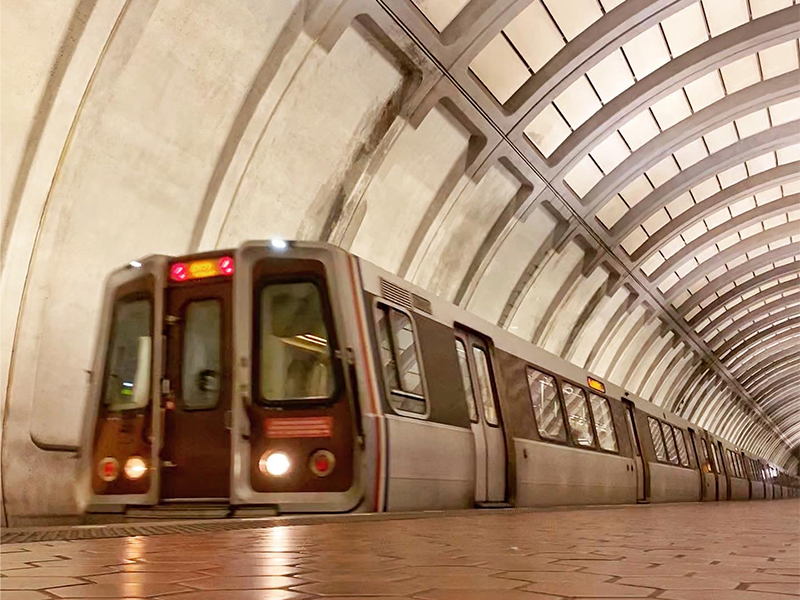
Metro to focus on root cause analysis and technology solutions prior to return of 7000-series railcars
Metro General Manager and Chief Executive Officer Paul J. Wiedefeld said last week that he will not resume the placement of 7000-series trains into passenger service for about 90 days to allow Metro engineering and mechanical experts time to focus on root cause analysis and acquire technology to measure 7000-series wheelsets.
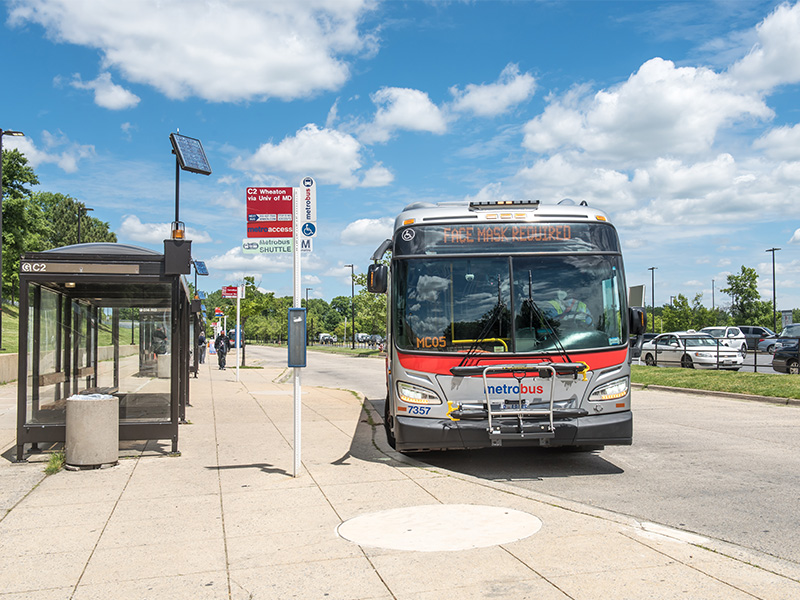
Per WMATA:
Metro’s Pandemic Taskforce is taking swift actions to protect the health and safety of its customers and employees against the recent surge in COVID-19 variants. Due to growing absenteeism rates across service areas related to COVID illness and exposures, Metro is reducing service schedules and implementing new workforce actions effective Monday, January 10.
- Metrorail will continue to operate on all lines as scheduled, with customers experiencing more frequent service at stations served by multiple lines.
- Metrobus will reduce service on weekdays to a Saturday schedule with additional trips on some routes, which is roughly 75 percent of regular Metrobus service and protects key routes that serve hospitals, grocery stores, and other essential destinations.
- Bus operators will be permitted to bypass customers not wearing masks for their health and safety.
- Metrobus customers are advised to consider alternative sources of transportation like Metrorail to travel throughout the region.
- MetroAccess will reduce shared rides and increase accessibility rides. For more information about MetroAccess, please visit wmata.com/metroaccess.
- Weekly testing requirements will remain in place for unvaccinated employees as more frequent testing requirement are evaluated and test availability improves.
- Beginning Sunday, January 16, employees who have failed to comply with Metro’s testing and vaccination policies will be placed on unpaid suspension until compliant. Employees will have 30 days to comply or be subject to termination of employment.
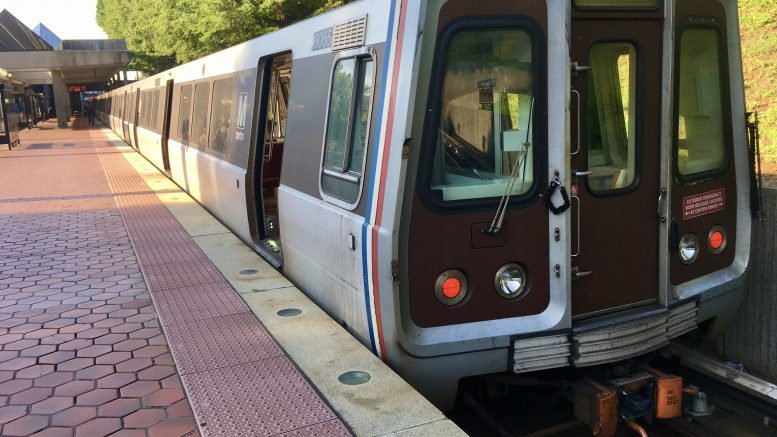
- Metrorail will operate 7:00 a.m. until 1:00 a.m, opening two hours later than a normal weekday. Time of last train varies by station.
- Metrobus will operate on a Sunday schedule
- MetroAccess subscription trips will be cancelled
- Metrorail will operate 7:00 a.m until midnight, closing one hour earlier than a normal Saturday
- Metrobus will operate normally on a Saturday schedule
- MetroAccess subscription trips will be cancelled
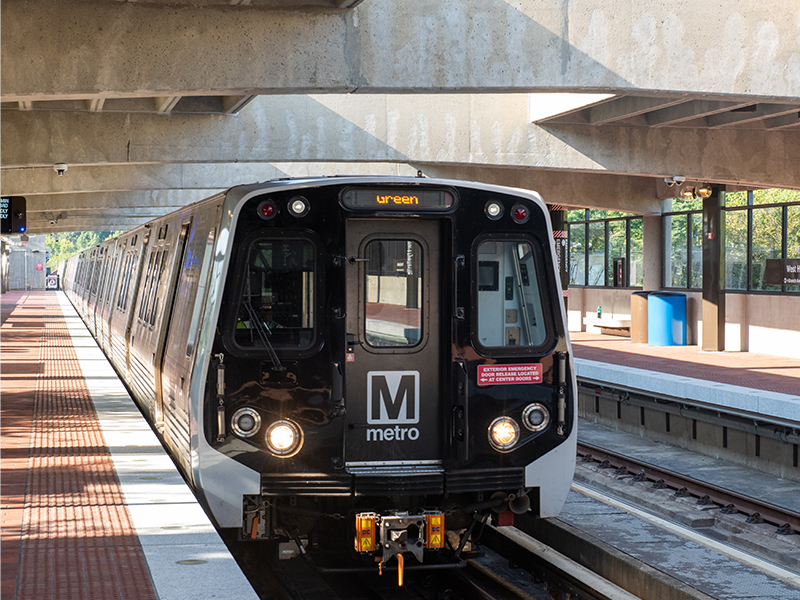
Per WMATA:
On Thursday, December 23, Metro’s General Manager and Chief Executive Officer Paul J. Wiedefeld paused the return of additional 7000-series railcars to passenger service, ordering a new regime of daily 7000-series inspections.
Although there are no new issues of concern, the Chief Safety Officer and Chief Operating Officer met with the Transportation Technology Center, Inc. (the independent consultant Metro hired to help with its root cause analysis following the derailment) and Metro officials concluded in an abundance of caution that moving to a nightly inspection of 7000-series railcars is the prudent course of action.
Metro notified National Transportation Safety Board and Washington Metrorail Safety Commission this afternoon of the updates to its 7000-series restoration plan.
“While I recognize the pause is unexpected, we are going to continuously evaluate data we are collecting to ensure that we are enhancing safety,” Wiedefeld said. “I feel that requiring a daily inspection is the safest course until we know more and our experts have an opportunity to review the data we are collecting with the few trainsets now in operation.”

7000-Series Return to Service Update
- On December 14, Metro is informed by the WMSC (Washington Metrorail Safety Commission) that it has no technical objections to the final plan submitted to gradually return nearly half of the 7000-series railcars to passenger service with the metered release of no more than 336 railcars.
Advisory Effective: 10/18/21 – 12/31/21
Pet Metro:
Metrorail service* will operate as follows:
- Red Line trains run every 12 minutes
- Green Line and Yellow Line trains run every 20 minutes
- Blue Line, Orange Line, and Silver Line trains run every 24 minutes
- Silver Line service has resumed between Wiehle-Reston East and Largo Town Center
*Service subject to change due to scheduled maintenance and track work.
View the weekday and weekend service advisories for scheduled service adjustments.
Metro will continue to operate at reduced service levels through at least December 31 and will advise the public of any additional service improvements should more trains become available.
Metro’s trip planner has been updated to reflect the latest service schedule. Customers are also encouraged to use the live train map to see the locations of trains on each line. In-station next train signs (Passenger Information Displays) are providing accurate train arrival estimates.
Metro continues to work closely with the Washington Metrorail Safety Commission and NTSB and as more information develops, we will update the public about service. Continue to visit wmata.com and follow us on social @metrorailinfo and @metrobusinfo for the most up-to-date information.
Actions Taken
On Wednesday, October 13, Metro began working with NTSB and the WMSC to determine the cause of the Blue Line derailment at Arlington Cemetery; that investigation is still ongoing.
Because safety remains our number one priority, we have removed all 7000-series railcars, roughly 60 percent of our fleet, from passenger service.
- On October 28, wheelset inspections were completed on all 7000-series railcars.
- On November 4, Metro submitted a test plan to the WMSC for acceptance. [Read test plan letter]
- On November 8, Metro began testing two weighted 7000-series trains in the system to determine inspection intervals.
- On November 17, Metro demonstrates wheelset measurements inspections [Watch Wheelset Inspection Video]
- On December 14, Metro is informed by the WMSC that it has no technical objections to the final plan submitted to gradually return nearly half of the 7000-series railcars to passenger service with the metered release of no more than 336 railcars.
Frequently Asked Questions
Background: On Wednesday, October 13, Metro, the National Transportation Safety Board (NTSB), Federal Transit Administration (FTA) and the Washington Metrorail Safety Commission (WMSC) launched an investigation into the Blue Line derailment that occurred on Tuesday, October 12, between Rosslyn and Arlington Cemetery Stations.
The investigation is ongoing, and the following questions provide the most up-to-date information to ensure the public is informed.
